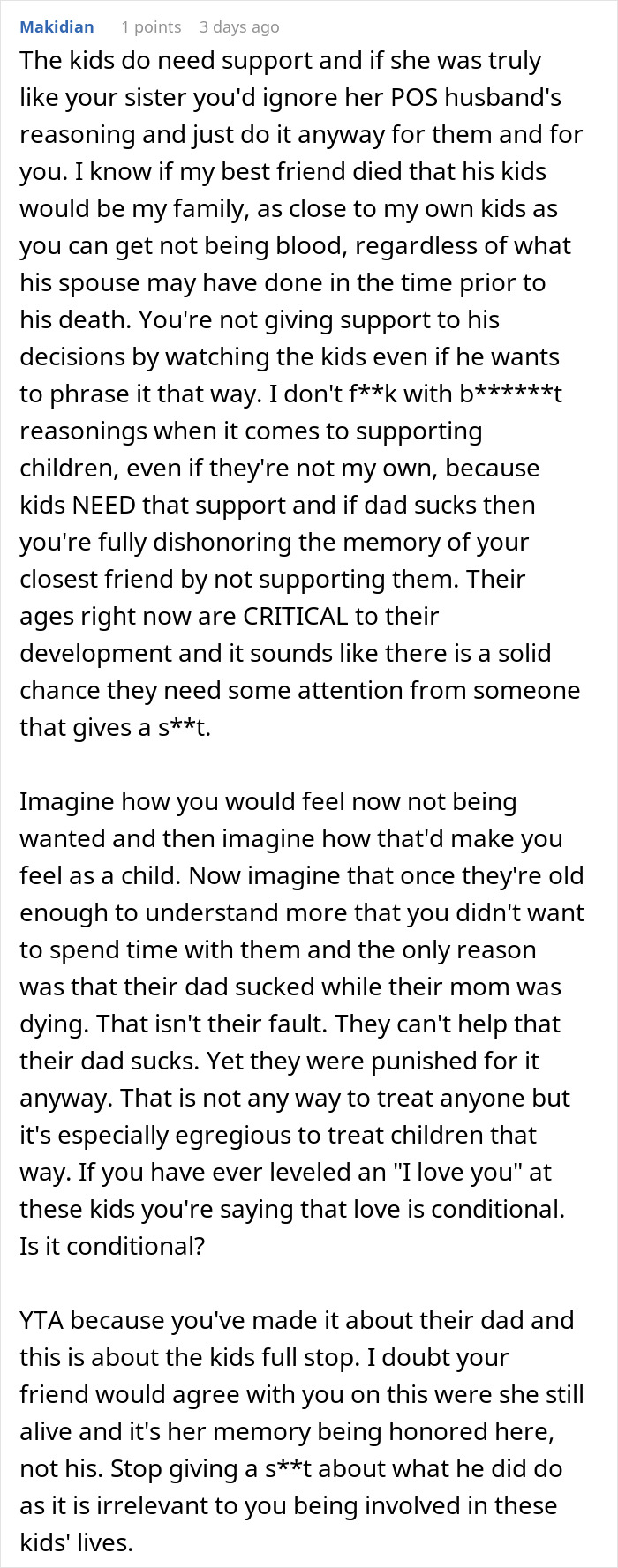There are many reasons couples drift apart and break up, but one of the most devastating might be cancer. According to one study, men are six times more likely than women to leave their wives after their partner gets a cancer diagnosis. But not all men leave; some choose to stay and cheat.
Like this guy, who was unfaithful to his wife during her chemo treatment. Her best friend took care of her during that hard time instead, and grew to loathe the husband. So, when he became a widower and asked her to babysit the kids so he can have more free time with his girlfriend, the woman blatantly refused.
A widower asked his deceased wife’s BFF to babysit his kids so that he and his new GF could have more “free time”

Image credits: Image by Freepik (not the actual photo)
She refused, but asked people on the internet whether she made the right decision
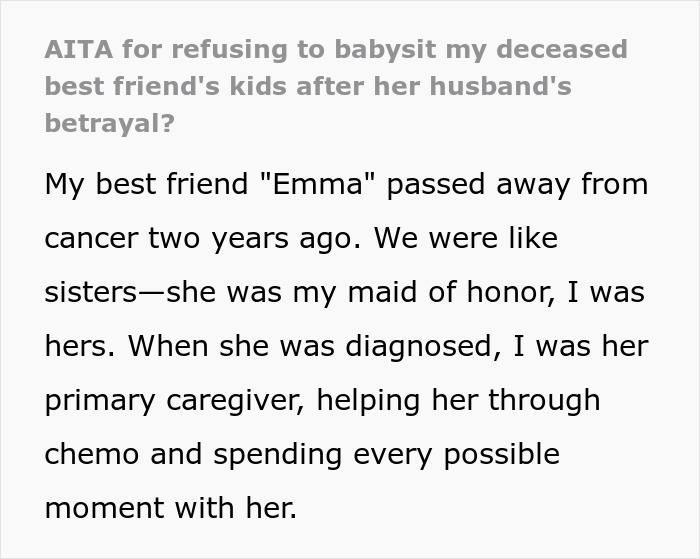
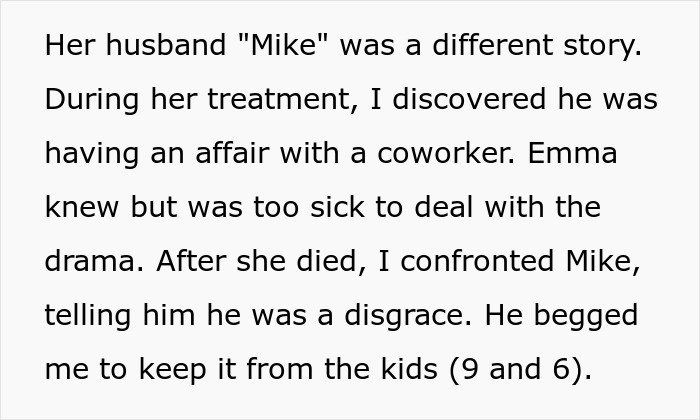
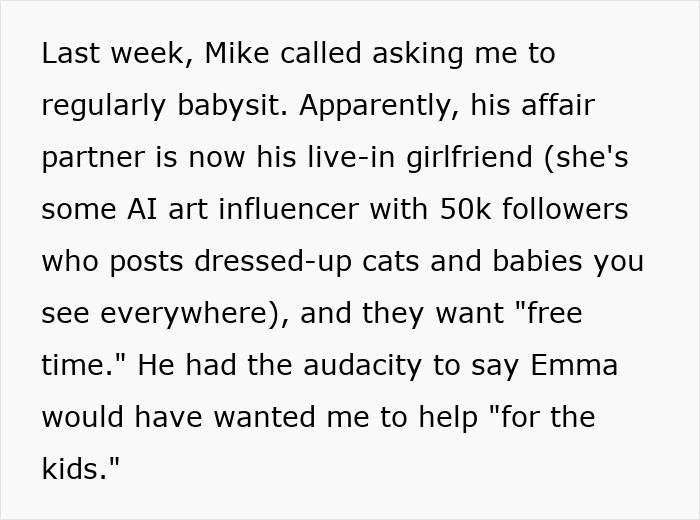
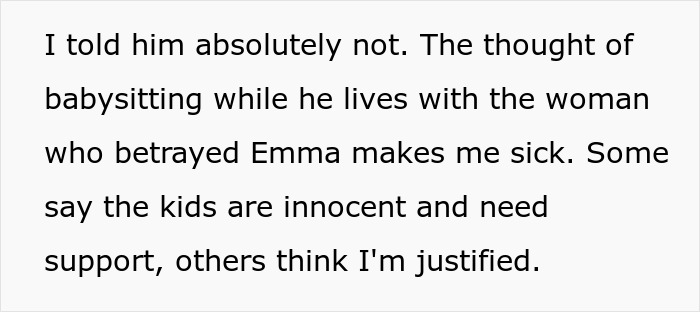

Image credits: Image by Freepik (not the actual photo)

Image credits: Adventurous-Pool6213
Only a small percentage of cancer diagnoses might cause divorces, but the ones who leave are most often men
The data on whether most men actually walk out on their partners after a cancer diagnosis varies. Some studies show that only 6% of marriages end in divorce when one partner becomes unwell. However, these researchers have also found that the strongest predictor for divorce among brain cancer patients was whether the patient is a woman.
Another study in 1999 also showed that divorce rates among couples where one partner has breast cancer were similar to regular couples. The rate of marital dissatisfaction among couples dealing with a breast cancer diagnosis and among those who didn’t was the same: 10%.
But it seems astonishing that any person who claims to love their partner would either leave or be unfaithful. After all, the part about being together in sickness and in health in marital vows is there for a reason. Yet the reasons why spouses walk out on their partners or find someone else are quite easy to explain.
Some husbands aren’t ready to become caregivers and take care of the home and family solo

Image credits: Image by Freepik (not the actual photo)
Marc Chamberlain, director of the neuro-oncology program at the Seattle Cancer Care Alliance (SCCA), and a co-author of one of the studies mentioned above, says that husbands find it extremely hard to adjust to their partner’s cancer diagnosis. They’re not ready to become caregivers and look after the home and family.
Marc Silver, author of Breast Cancer Husband, talked to oncologists, breast cancer patients, their husbands, and many experts. As one oncologist told him, men “walk out on a newly diagnosed wife because cancer is more than they bargained for when they got married.”
He also recounts a story of a woman who called a cancer helpline, admitting that she knows her husband is out with another woman at the moment. After the counselor asked whether the husband is aware that she knows this, she confirmed. “He told me. And he said he won’t break it off because if something happens to me, he doesn’t want to be alone.”
Most women take on caregiving roles more easily, thinking its their duty

Image credits: Image by Freepik (not the actual photo)
Sociologist Deborah Carr says it’s not surprising that men leave after a serious diagnosis. She explains that there’s heaps of data showing that women take on the role of a caretaker more often than men. “Women see it as part of the bargain they signed on for. Men don’t anticipate this happening, and it changes the marriage for them,” she wold Newsweek.
“In many cases, underlying issues that were preexisting for the couple really come to the surface as a result of the stress of a cancer diagnosis,” Jessica Worthington, LMFT told CURE. “It can be really hard for many people.”
What’s more, the sex life of a couple where one partner has a cancer diagnosis suffers considerably. Cancer patients’ libido virtually vanishes, as Chamberlain explained to Newsweek. “We’re going to marshal our energies and channel them to do just the basic activities. Sexuality will fall victim to that,” he added.
After their spouse passes away from cancer, women usually aren’t quick to remarry. Men, on the other hand, “marry again in a heartbeat,” Carr explains. Women’s thought process is that “they gave care to a dying man once, and they don’t want to do it again,” according to Carr.
Many sided with the woman and had no empathy for the cheating husband



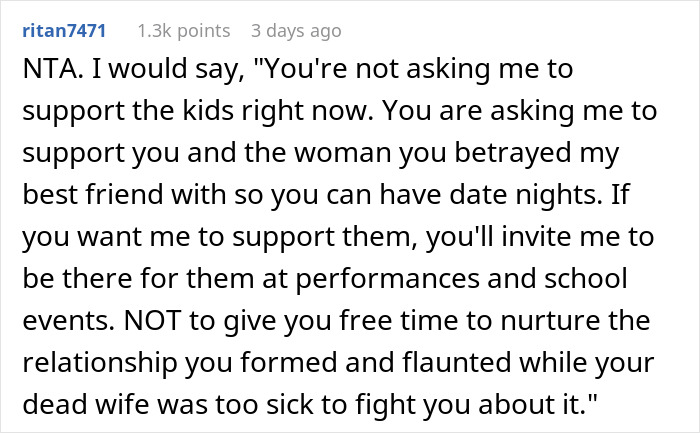








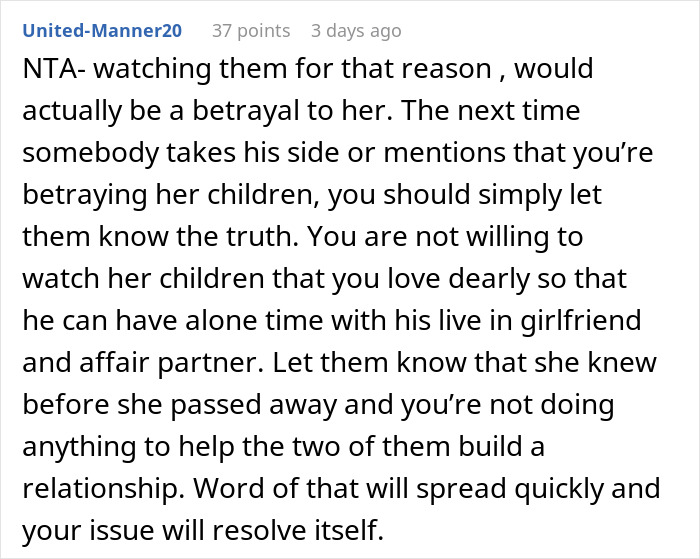


Others thought the children were the main victims here: “They have nothing to do with his choices”



